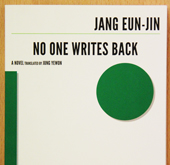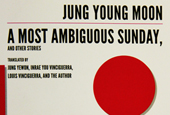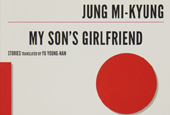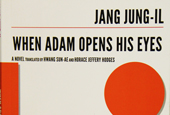-
 Korea.net's 24-hour YouTube channel
Korea.net's 24-hour YouTube channel- NEWS FOCUS
- ABOUT KOREA
- EVENTS
- RESOURCES
- GOVERNMENT
- ABOUT US
The Bilingual Edition of Modern Korean Literature series features 15 short stories in English and Korean.
The Bilingual Edition of Modern Korean Literature, a pack of 15 short stories, has been reaching its readership worldwide since its publication by Asia Publishers on March 14.
In fact, this series is the fourth of its kind, after three of its siblings were published back in July 2012 and in June and November 2013. The volumes this time are categorized under three themes: Diaspora, Family and Humor.
In the Diaspora section are works penned by five novelists: Kim Nam-il, Gong Sun-ok, Kim Yeon-su, Kim Jae-young and Lee Kyung. The Family section features Chun Seung-sei, Jeon Sang-guk, Lee Dong-ha, Lee Hye-kyung and Kwon Yeo-sun. Finally, the remaining five writers, Han Chang-hoon, Jeon Sung-tae, Lee Ki-ho, Kim Jung-hyuk and Kim Chong-kwang, deliver their literary worlds under the Humor theme.
Among the featured works is “People I Left In Shanghai” by Gong Sun-ok, part of the Diaspora series of tales. The story, told in the first person, begins when a woman boards a plane to visit her friend in China and to free herself from the haunting memories of her old flame.
Pictured are the 15 authors featured in the Bilingual Edition of Modern Korean Literature, a series of short stories published by Asia Publishers on March 14. (photo courtesy of Asia Publishers)
The narrator stays in a boarding house, the “Lovers Villa,” where she meets a Chinese woman of Korean descent, an employee there, and an old man, who has come from Korea to retrace the footsteps of his father.
The narrator finds out that the Chinese woman was deported from Korea while attempting marriage fraud. The desperate woman, the kind of person who would do anything to make money, beseeches the narrator to bring her back to Korea. Meanwhile, the old man has been looking for his father who left for Yenan in 1936, he says, just after fathering him.
The narrator finds it more and more uncomfortable to be around the pair. The woman and the old man are like bothersome, uninvited guests. She tries to coldly turn around and leave them behind, but what clutches at her is the mother tongue they all share.
As time goes by, the three of them get along as if they were, “family members who had learned to live together after a fight.” Watching the woman take care of the old man, although she usually scolds him, the narrator thinks that the woman looks like a, “thoughtful little sister, a sister scolding her childlike elder brother, only because she cares about him.”
The narrator finally leaves the two. One day, she passes by a loquat orchard and pauses to walk deeper into the orchard. There she thinks about the old man. In the last scene of the novel, the narrator says:
“I thought of Yenan below a loquat tree. Were there loquat trees in Yenan, too? Was the Yenan the old man mentioned actually Yan'an? Were there any loquats in Korea? The wind shook the trees.”
Gong Sun-ok’s short story “People I Left In Shanghai.” (photo courtesy of Asia Publishers)
The story questions how we could meet and communicate with members of the diaspora, or “diasporic” people. At the same time, it illustrates the more general issue of our ability to sympathize.
The term “diaspora” derives from the Greek verb “diaspeirō.” The “dia” means “over” and the "speirō" means “I sow” or “I scatter.” All together, it means any group of people who have been dispersed from their traditional homeland, people who have been living double identities in their new homes.
In Gong’s story, the “diaspora” element is reflected in all three characters. They all belong to the Korean world. First, the Chinese woman experiences expulsion from Korea, whereas the old man lives outside of his own country to trace his father and his origins. Lastly, for the narrator, as only vague traces of memories of the homeland exist in the diaspora, so, too, are the memories of her old love fading more and more in her mind.
“The scene in this story, in which the narrator is drawn into the loquat orchard even after coldly leaving the woman and the old man, suggests the complexity inherent in remembering one’s departed lover and in embracing the diaspora,” said literary critic Lee Do-yeon.
“This story’s lesson does not limit itself to the problems of a diaspora. It extends to the more general problem of encountering people like us and of our ability to sympathize with them.”
Born in 1963 in Gokseong, Jeollanam-do (South Jeolla Province), Gong Sun-ok made her literary debut in 1991 with her novella “Seed Flame.” The writer received the Women News Literary Award in 1992 with her short story “Monsoon.” She has published numerous novels -- “My Thirties Left Behind in Oji-ri,” “Blooming Times” and “Alibi for the Next Life” -- as well as a collection of short stories, “Bloom. Daffodil,” to name just a few.
By Sohn JiAe
Korea.net Staff Writer
jiae5853@korea.kr























